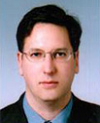
About fifteen years ago as a university student in the , an American friend of mine returned from a trip to and the one thing I remember from his telling me about his of trip was his description of the Korean alphabet as the “space alien language.” Indeed, for those unfamiliar with the script, seeing it in its modern fonts on neon signboards might remind someone of the undecipherable lines and circles seen on the sides of spacecraft in science fiction movies. However, as “alien” as it might look, it is remarkably easy to learn and carries with it valuable philosophical and scientific principles that will enrich anyone giving the effort to learn it.
The Korean alphabet, Hangul (the “Great Script”), is unique among major world alphabets in that its inventor is known to us, and it was created in relatively recent times. In 1443, King Sejong the Great commissioned that an alphabet be created for the Korean language, which had hitherto relied on Chinese characters for writing. In 1446, the new alphabet was promulgated in an enlightened document titled “The Proper Sounds for the Education of the People.” Hangul be seen as a humanistic creation of the Korean renaissance.
Twenty-eight letters were created, of which 24 are used in modern Korean. Its ten vowels represent the three concepts of Yin (Earth) and Yang (Heaven), with Man at the intersection of the two. Its 14 consonants mimic the shape the mouth takes when forming their sounds, thus earning Hangul the distinction of being “the world’s most scientific language.” The consonants and vowels are then combined to form syllable blocks that are easy to recognize and, with practice, to pronounce.
Because of its ease and regularity, it is no exaggeration to say that the Hangul alphabet can be learned within an afternoon. However, while the script is simple and straightforward, the language it represents is anything but. Indeed, the Korean language is one of the world’s most difficult to learn, especially for speakers of European languages. That said, one should not miss the opportunity to learn the Korean alphabet, even if one has no intention of mastering the language, a task that would takes years if not an entire lifetime.
Even for those whose stay in will be brief and have no intention of learning any Korean beyond basic greetings and items on a menu, learning the Korean alphabet is a profitable endeavor. Hangul offers a window not only into Oriental philosophy but also universal phonological principles that are true of all languages. Whether your stay in will be of a few months, a few years, or a lifetime, learning Hangul will be a valuable way to spend an afternoon.


